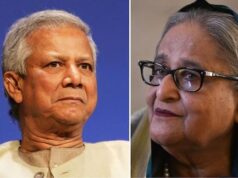Power takeovers in West Africa spell end of French hegemony

On July 26, military rebels in Niger announced the removal of President Mohamed Bazoum, closure of national borders, introduction of a curfew and suspension of the constitution, as well as a ban on political parties
Several coups in West Africa – in Mali, Burkina Faso and now in Niger – over recent years have indicated the end of a long period of France’s dominating influence in the region, according to Oluwole Onemola, an expert on foreign affairs from Nigeria.
He noted that in Niger, Mali and Burkina Faso the participants of military takeovers were “expressing anti-French sentiments.” “In January of this year, Burkina Faso announced the end of its military pact with France — expressing a desire for self-defence and self-determination.
Similarly, sixty years after its independence, just a few days ago, Mali announced the end of French as its official language. All this cannot have happened by coincidence,” the Daily Trust newspaper quoted the expert as saying.
French influence
“Given the growing anti-French sentiments in various African nations, should we consider France’s hegemonic influence in these Francophone countries as a contributing factor to the occurrence of three coups?” Onemola asks.
He stresses that French influence is still felt in many African countries. “For instance, among the 16 West African countries, 8 use the West African CFA Franc as their official currency.
This currency is issued by the Central Bank of West African States and is pegged to specific requirements and restrictions set by the French Treasury. As a result, while these countries are politically sovereign, they lack full economic independence,” the expert notes.
Onemola cautions Nigeria against interfering in Niger’s affairs or opting for a military intervention given the necessity of fighting armed extremists within Nigeria itself, in particular, the Boko Haram group.
Situation in Niger
On July 26, military rebels in Niger announced the removal of President Mohamed Bazoum, closure of national borders, introduction of a curfew and suspension of the constitution, as well as a ban on political parties.
On July 28, they declared that General Abdourahmane Tchiani had become head of state. During the coup, Tchiani headed the presidential guard, units of which physically seized President Bazoum and continue to hold him.




